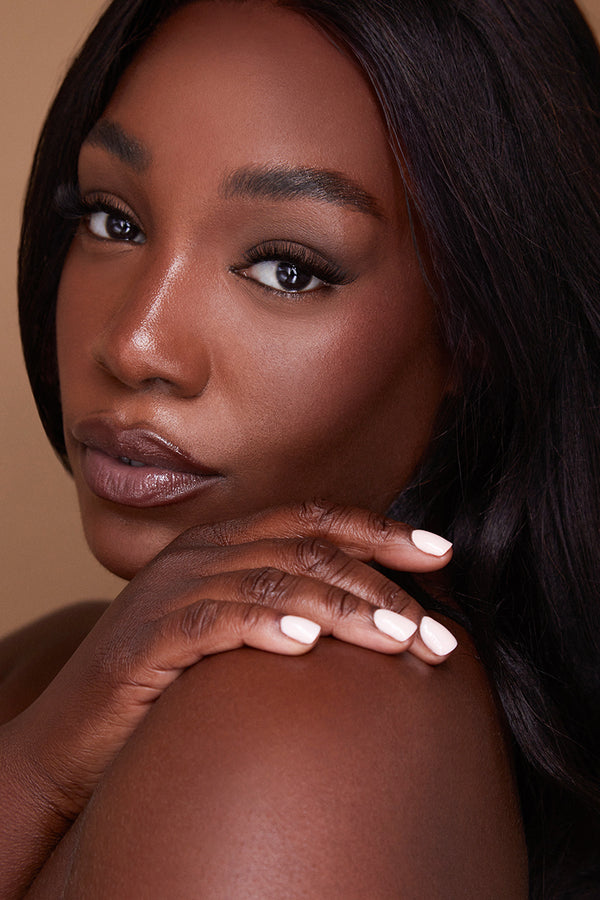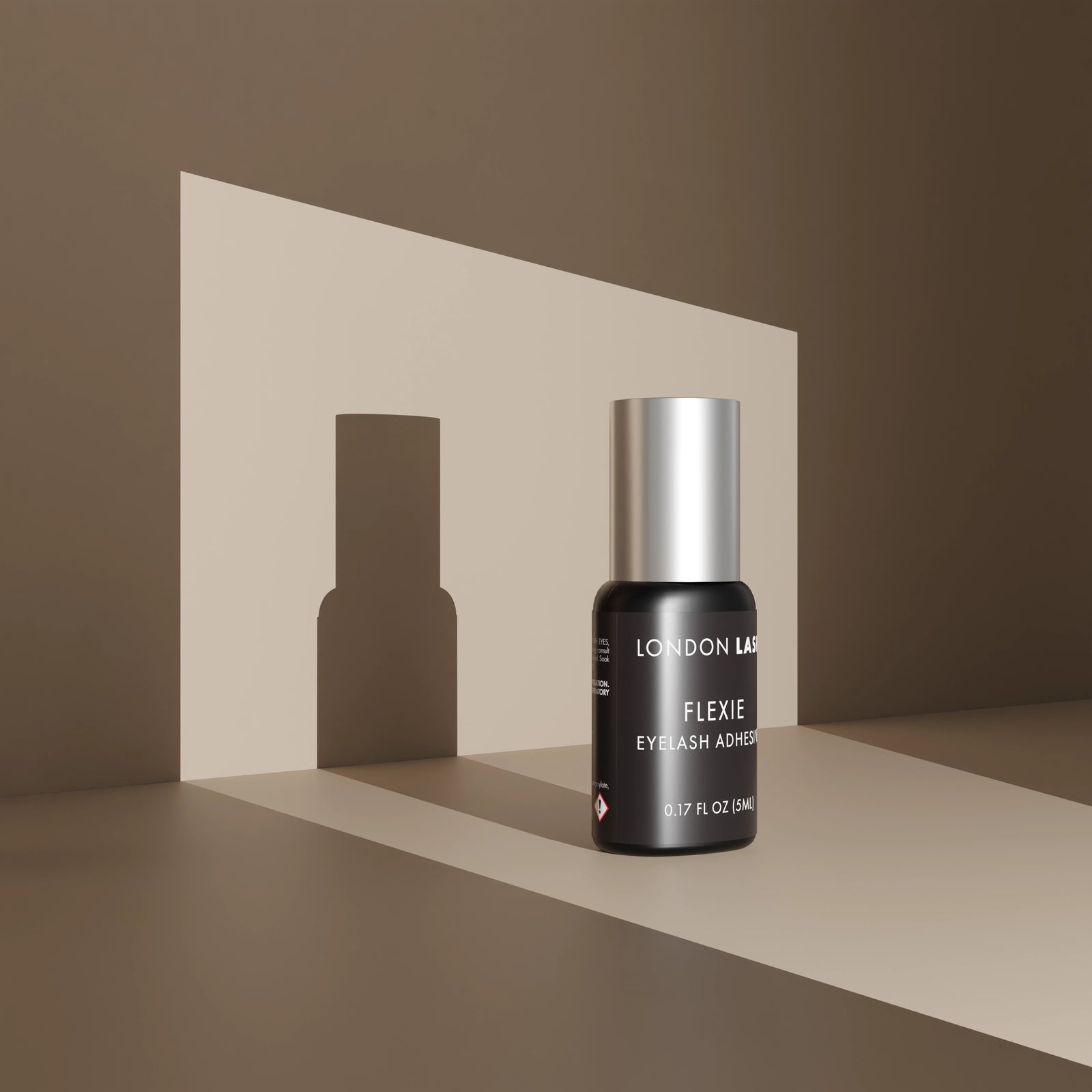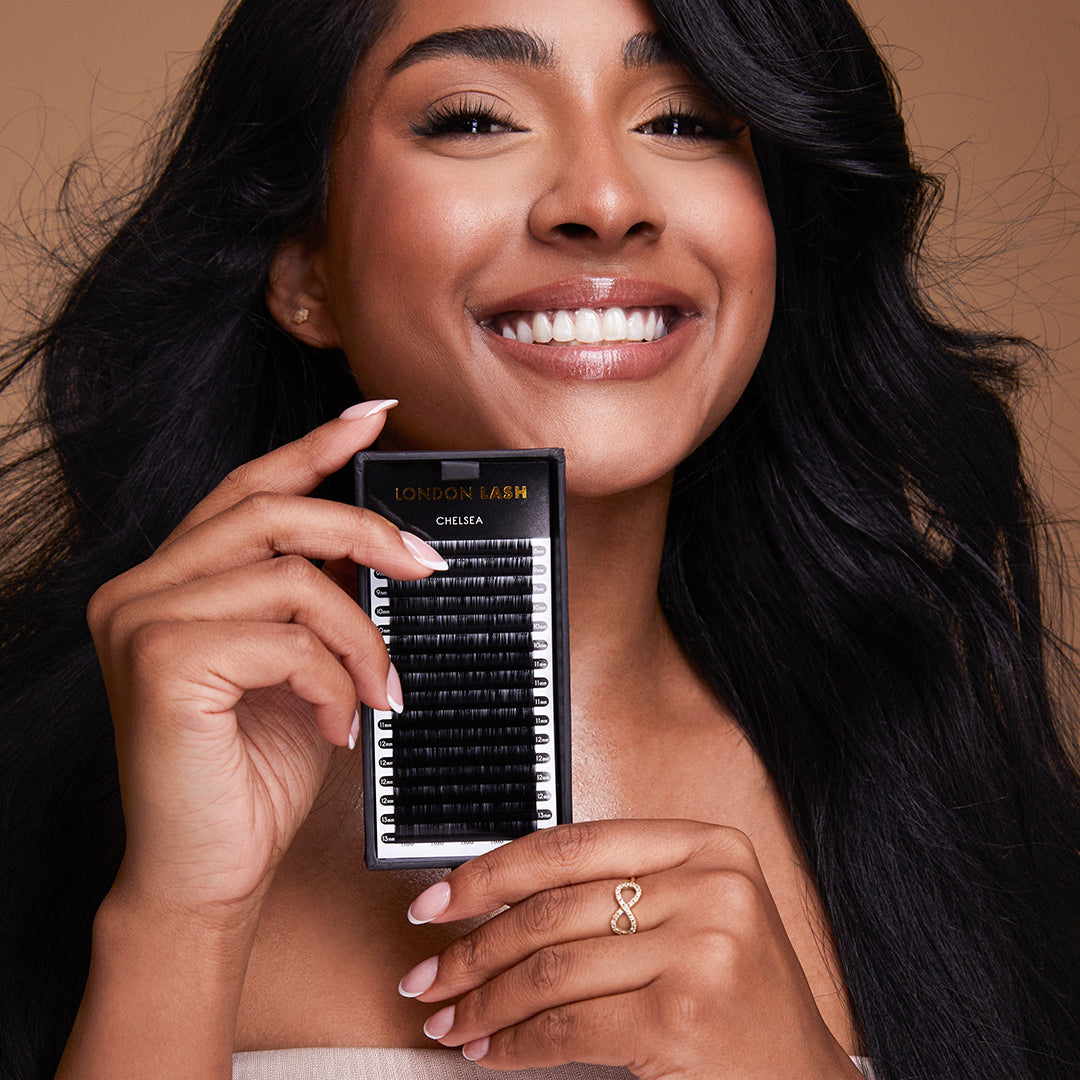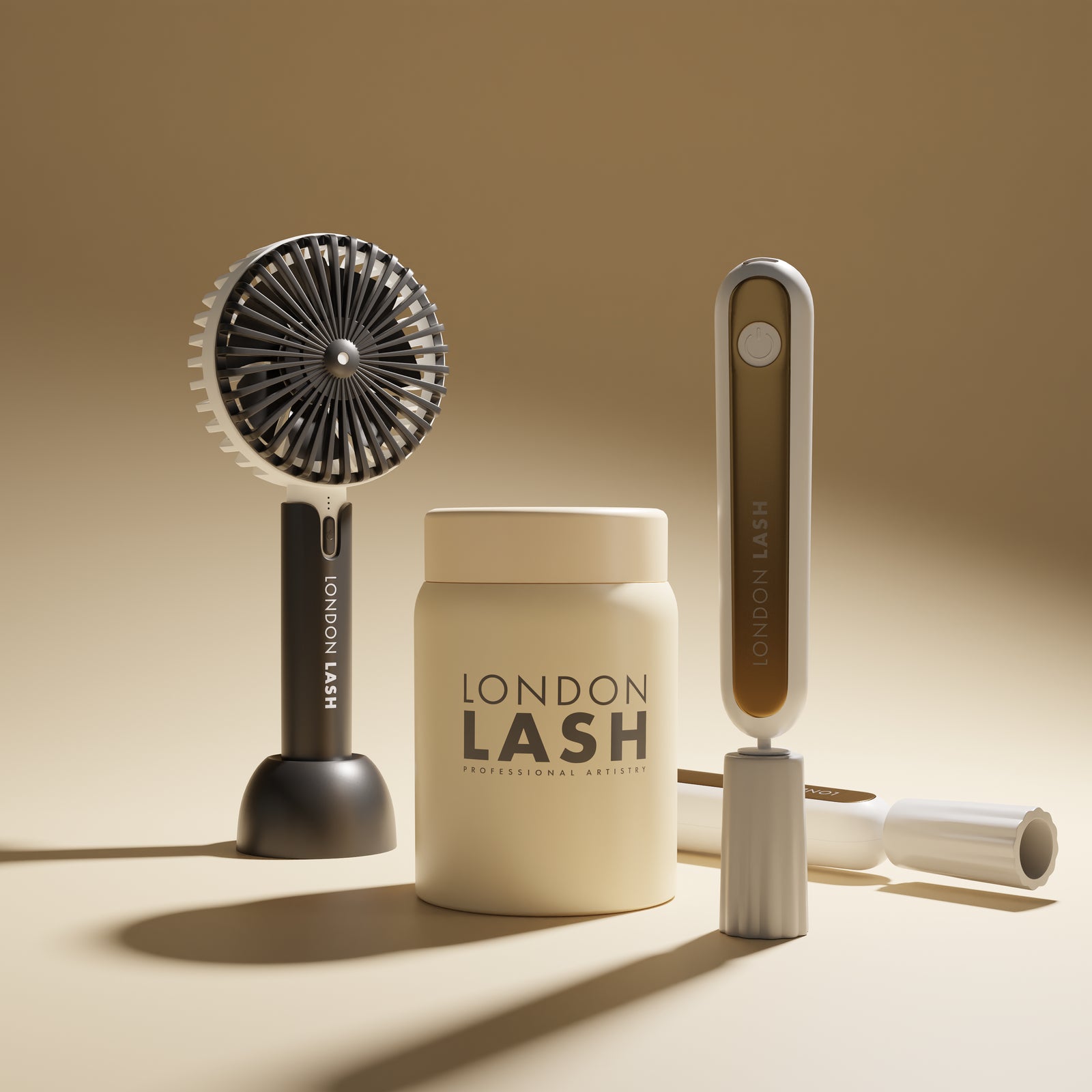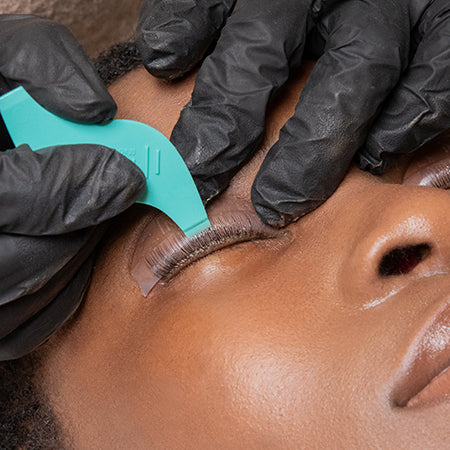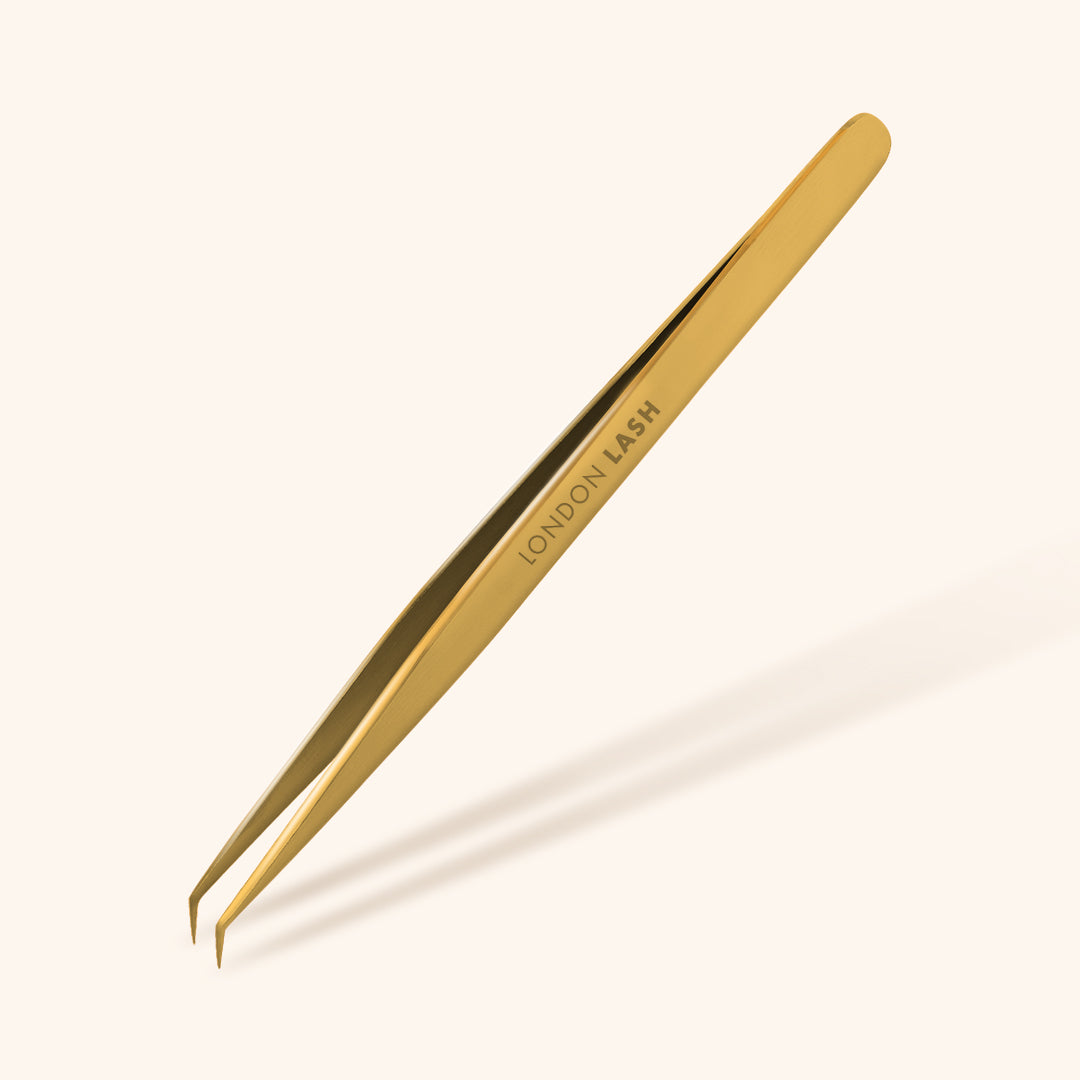FREE STANDARD SHIPPING FOR ORDERS OVER £90!🚚
FREE STANDARD SHIPPING FOR ORDERS OVER £90!🚚
New In
Glues & Liquids
EYELASH EXTENSIONS
ACCESSORIES
Training Courses
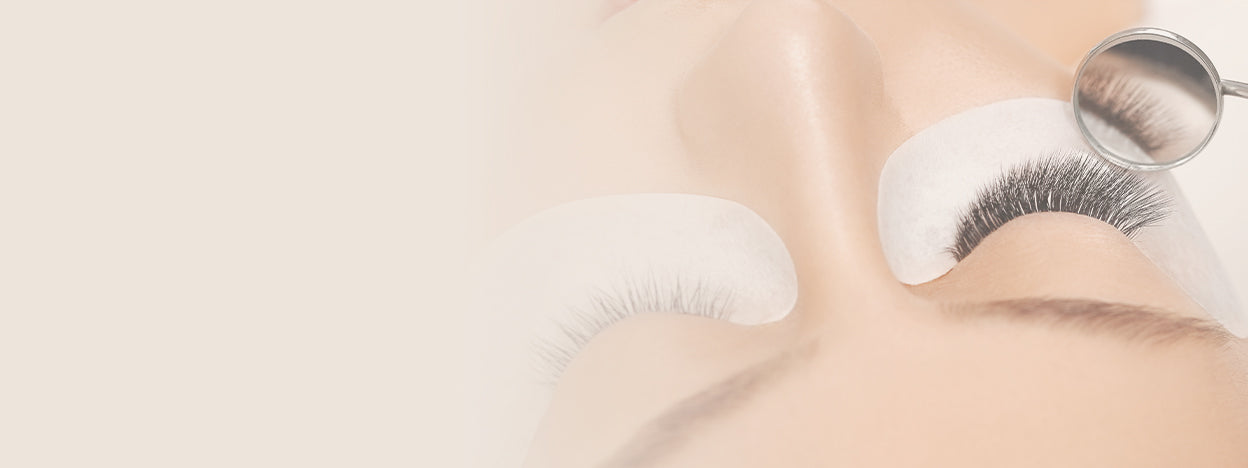
9 Mistakes Beginner Lash Techs Make
August 04, 2021 7 min read
9 Common Mistakes Beginner Lash Technicians Make
Whether or not we'd like to admit it, we're all likely to be making these mistakes as beginners Lash Technicians, and if we don't correct them, then those mistakes may very well become habits which will have a lasting impact on our lash career in the future. So here are our top tips to help you avoid making these common mistakes with ease.
1. Using Too Much Or Too Little Eyelash Glue
If you've ever wondered why your clients' eyelash extensions aren't lasting as long as they should be, it's probably because of the amount of eyelash glue that you’re using during your lash treatments! First things first, don't swipe your eyelash extensions in the lash glue, as this will just create a film of adhesive on the eyelash extension and the lash glue will cure before it gets a good grip on the lash. Instead, try to scoop the lash glue on to your eyelash extensions. But not too much, you just want the tiniest ball of lash glue on your eyelash extension, not a big blob!
London Lash Top Tip: If you get too much lash glue on your eyelash extension, scoop it slower, because if you scoop the lash out too fast, you'll pick up too much lash glue.
If you'd like to know more about how you can achieve the perfect lash glue dipping technique for your eyelash extensions every time, take a look at this blog post next!

2. Taking Too Much Time To Isolate The “Perfect Eyelash”
Have you ever noticed that you've spent quite a bit of time just trying to isolate one eyelash? Well, this is actually very common. A lot of beginner Lash Techs look for an ideal natural eyelash to apply an eyelash extension to. This is why it's important to keep in mind that every one of those individual lashes needs an eyelash extension to be applied to it, so it really doesn't matter which of those natural lashes that you choose to do first.
London Lash Top Tip: If you do the difficult natural lashes like those at the inner corners and baby lashes first to get them out of the way, then you won’t be too tired towards the end of the lash treatment and you'll also only have the easy natural lashes left!

3. Using The Wrong Lash Mapping Styles
It is so important that you know how to choose the correct lash mapping styles for each of your clients' eyelash extensions. You have to determine which lengths, thicknesses, and curls will be appropriate for the natural lashes of each of your clients. Remember to consider things such as the directions that their natural lashes grow, your clients' unique facial features and bone structure, their eye shape, and the distance between their eyes. For example, most of your clients will probably want a lash mapping style like Cat Eye Lashes, but the reality is that only a handful of people actually have the correct eye shape to pull off this lash style. This is definitely something that you'll really need to take into consideration.
Most eyelash extension looks will require you to mix different types of lash curls, so that they will blend together better and look more natural. Eyelash extensions that are too thick or Volume lash fans that are too big are not good for long term wear as they can seriously damage the natural lashes with their heavy weight - reserve these mega drama lashes for short periods of time and special occasions ONLY.

4. Incorrect Pre-Treatment Routine For Natural Lashes
If you want to achieve amazing eyelash extension retention for your clients, then you need to ensure that your implementing a pre-treatment routine that thoroughly cleanses and preps the natural lashes before you even think about applying any eyelash extensions. You need to be sure that your clients don't have any leftover residue like makeup, dirt, or oils on their natural lashes in order to provide the perfect base for the lash glue and eyelash extensions to adhere to.
You can use Lash Shampoo and Protein Removing Cleaning Pads for an initial cleanse of the natural lashes, but for the best results, you should always follow them up with Cleanser for a more thorough cleansing and then Primer to rehydrate the lashes after using Cleanser. It's also important to remember that you still need to follow a thorough pre-treatment routine when doing infills for lash extensions and not just new sets of lashes.
If you want to make sure that you get to the roots of those lashes to make sure that they're squeaky clean, then we'd recommend that you use Microfibre Eyelash Brushes to apply and carry out your pre-treatment routine.
London Lash Top Tip: Remind your clients to come to their appointments without any makeup on, or to at least avoid wearing waterproof mascara on their appointment day to save time during your pre-treatment routine.

5. Distance Between Lashes & Eyelids
Achieving the correct distance from your client's eyelid when applying an eyelash extension is very tricky and requires a lot of experience and practice to get it right. If you attach the eyelash extensions too close to your clients' eyelids, it will be very uncomfortable or even painful for them as the eyelash extensions and eyelash glue will irritate their skin. Whilst sticking the eyelash extensions too far away from their eyelids isn't as bad as getting too close, they will eventually grow out much quicker than the other lashes and will be too heavy for the roots of those natural lashes. When it comes to appearance, they'll also look very messy and could even cause the eyelash extensions to twist.
The ideal distance between the eyelash extensions and your clients' eyelids is between 0.5-1mm. However, this depends on your experience, so remember that it's better to keep them further away than too close!
6. Eyelash Extension Stickies
Stickies are one of the most important things to watch out for when applying eyelash extensions. The reason why it's so important to check your work for stickies is that they are extremely damaging for the natural lashes. The first step for preventing stickies is to correctly isolate the individual lashes. Checking your work for stickies is as important a part of your lash procedure as applying under eye patches - it’s all about safety! Always ensure that you save at least 10 minutes at the end of each lash treatment to thoroughly and correctly check for stickies.
One way that you can identify stickies is by checking each of the individual lashes from root to tip with your eyelash tweezers. Don't forget to check the natural lashes to make sure there aren't any baby lashes stuck anywhere. The second way to identify stickies is by checking the layers of the natural lashes because eyelashes don’t grow in just one row - you're almost guaranteed to find at least one stickie between the layers!

7. Not Lash Mapping For Lash Extensions
Even the most experienced Lash Technicians always use a lash map. It doesn’t add much extra time to your treatments, but will definitely have a major impact on the overall look of your eyelash extension sets. Symmetry is absolutely key when doing lashes and without any lash mapping, it will be extremely difficult to remember which eyelash extensions you used and where. When you start working with the natural lashes in layers, you'll know that you need to apply longer eyelash extensions on the bottom lash layers and a shorter eyelash extensions on the top lash layers. Doing so will mean that when your clients open their eyes, they'll have gorgeously even lashes, and lash mapping is essential to achieve this.
London Lash Top Tip: Start mapping the lashes when your clients have their eyes open, using an eyeliner or brow pencil to mark the middle of the eye (where their iris is) on their eyelids. When their eyes are shut, it's tricky to determine where the middle of their eyes are.

8. Bad Eyelash Extension Directions
This is definitely one of, if not the most common mistake beginner Lash Techs make. There are 2 types of directions that you need to pay attention to when applying eyelash extensions. The first one is the direction of the base of your eyelash extensions. We usually like to follow a placement guide that resembles a “sunrise” as this will help you to remember which direction the lash extensions should always go. Just think of the beams coming off of the sun.
You'll want the eyelash extensions attached at the inner and outer corners of the eyes to fan outwards, not straight ahead. The second type of direction you need to be aware of is the tips of your eyelash extensions. If you fan out the eyelash extensions perfectly but aren't keeping an eye on the directions of the tips of the eyelash extensions, the overall appearance of the lash set will look very messy.
London Lash Top Tip: Use a lash mirror to check the directions of the tips of the eyelash extensions throughout your lash treatments.
9. Incorrect Placement For Under Eye Patches
Trying to achieve the perfect placement for the under eye patches can feel daunting and frustrating, but they're an important factor for creating the base for a good set of lashes. If the under eye patches are placed incorrectly, it will be extremely uncomfortable for your clients and can lift up the natural lashes at the inner corners which can result in creating the wrong distance and an overall messy look for your clients' lashes when they open their eyes.
The under eye patches should never ever be touching the waterline of your clients' lower eyelids as this will be very uncomfortable and can increase their risks of developing a chemical burn, or bruising on the eyes... ouch!
London Lash Top Tip: If your under eye patches are lifting at the inner corners of a client's eyes due to their eye shape, or they have trouble closing their eyes completely, try using Foam Tape as an alternative to under eye patches. You can still draw lash maps on them, cut them into a better shape for your clients' eyes, and you'll actually save money (perfect for beginners)!

We hope that you've found our list of the most common mistakes beginner Lash Technicians make helpful for identifying where you might be going wrong, and the tips and tricks we've provided that you can use to improve the quality of your eyelash extension treatments for your clients!
Subscribe
Sign up to get the latest on sales, new releases and more …
